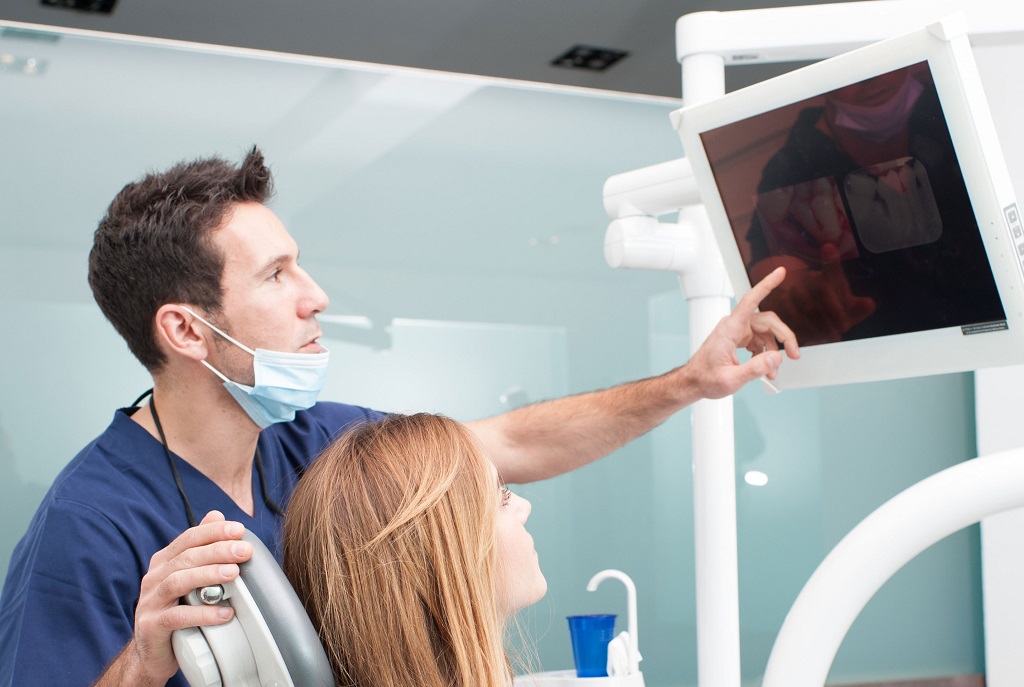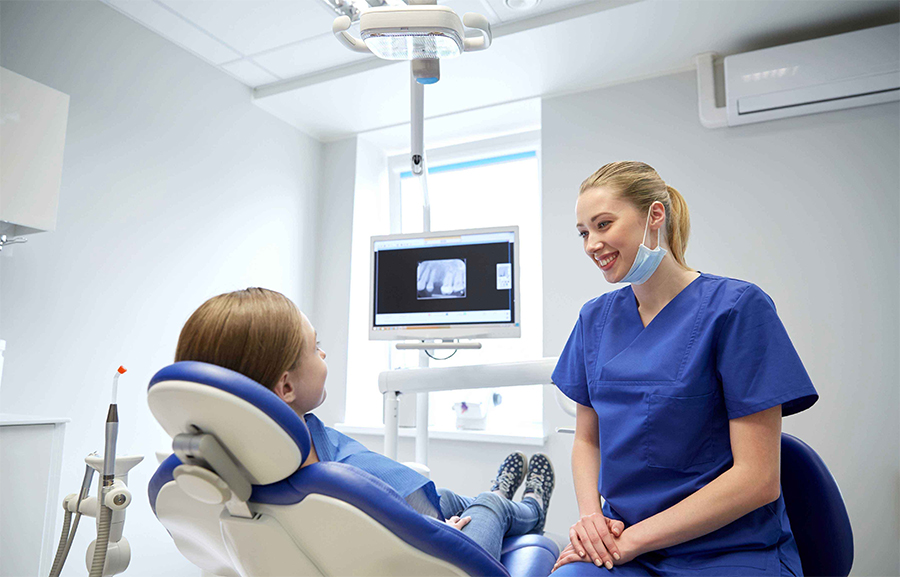There are different kinds of dental issues and you must choose the right dentist for a specific problem. Everyone deserves the treatment dentistry can offer and making engaged decisions is an integral part of this process. Our guide will help you understand various dental specialties and pick the right dentist for the job.
Prosthodontics
A prosthodontist has three additional years of postdoctoral training in dentistry, gaining advanced skills in both cosmetic and restorative procedures. They focus on treatment of patients with complex cosmetic and restorative needs. For patients who need crowns, implants, root canal treatment, and gum surgery, a prosthodontist will act both as the restorative dentist and the coordinator of the overall treatment.


Oral and Maxillofacial Surgery
Oral surgeons receive 4–6 years of post-doctoral training in accredited residency programs. They receive hospital-based training in oral and facial surgical procedures and anesthesia, in addition to extensive medical training to care for the patients. Most are board certified as necessary for obtaining hospital privileges.
An oral surgeon will help you:
– Extracting teeth
– Dental implant placement
– Minor and major bone grafting procedures to create site for implants
– Oral biopsies
– Corrective Jaw surgery
– Oral and facial infections
– Surgical treatments in pediatric patients
Endodontics
Endodontists are root canal treatment specialists. They receive 2–3 years of post-graduate training on treatment of conditions affecting teeth’s root canal system. They have advanced surgical and non-surgical skills that make them uniquely qualified to treat routine as well as complex cases. The root canal contains the blood supply and nerve tissue vital to a healthy tooth.
An endodontist will offer great help if you have the following needs:
- Saving a non-vital or irreversibly inflamed tooth and avoid extraction
- Root canal treatment for teeth that exhibit temperature sensitivity or pain due to decay or trauma
- Teeth with abscess due to necrotic root or other types of pathology (such as cysts) compromising its health

Orthodontics
Orthodontists receive 2–3 years of post-graduate training, specializing in straightening teeth and management of jaw relations in both children and adults. Crooked and crowded teeth are prone to decay, periodontal disease, and possible loss. Orthodontists can align teeth for improved function and aesthetics. Orthodontic related treatments may start in patients in as early as 8 years old or adult patients.
An orthodontist will:
- Straighten and align teeth for improved bite and aesthetics
- Correction of misaligned or asymmetrical jaws
- Retainers or night guards
- Treatment of TMJ (Temporomandibular Joint Disorders)and facial muscles related pain
Periodontics
Orthodontists receive 2–3 years of post-graduate training, specializing in straightening teeth and management of jaw relations in both children and adults. Crooked and crowded teeth are prone to decay, periodontal disease, and possible loss. Orthodontists can align teeth for improved function and aesthetics. Orthodontic related treatments may start in patients in as early as 8 years old or adult patients.
A periodontist will of great help if you have the following needs:
- Surgical and non-surgical treatment of gum disease
- Preventive periodontal procedures
- Treatment of gum recession via grafting procedures
- Cosmetic gingival procedures
- Minor bone grafting procedures for implants
Pediatric Dentistry
Pediatric dentists receive 2–3 years of specialized training after dental school, and are dedicated to the oral health of children from infancy through the teenage years. The very young, pre-teens, and teenagers all need different approaches in dealing with their behavior, guiding their dental growth and development, and helping them avoid future dental problems.
A pediatric dentist will address the following:
- Any dental related procedures in patients from infancy to early teen-age years
- Fillings, crowns, and root canal procedures on primary teeth
- Knocked out or fractured primary teeth (may require an oral surgeon)
- Treatment of minor trauma to primary teeth
- Routine cleaning and preventive dental procedures

